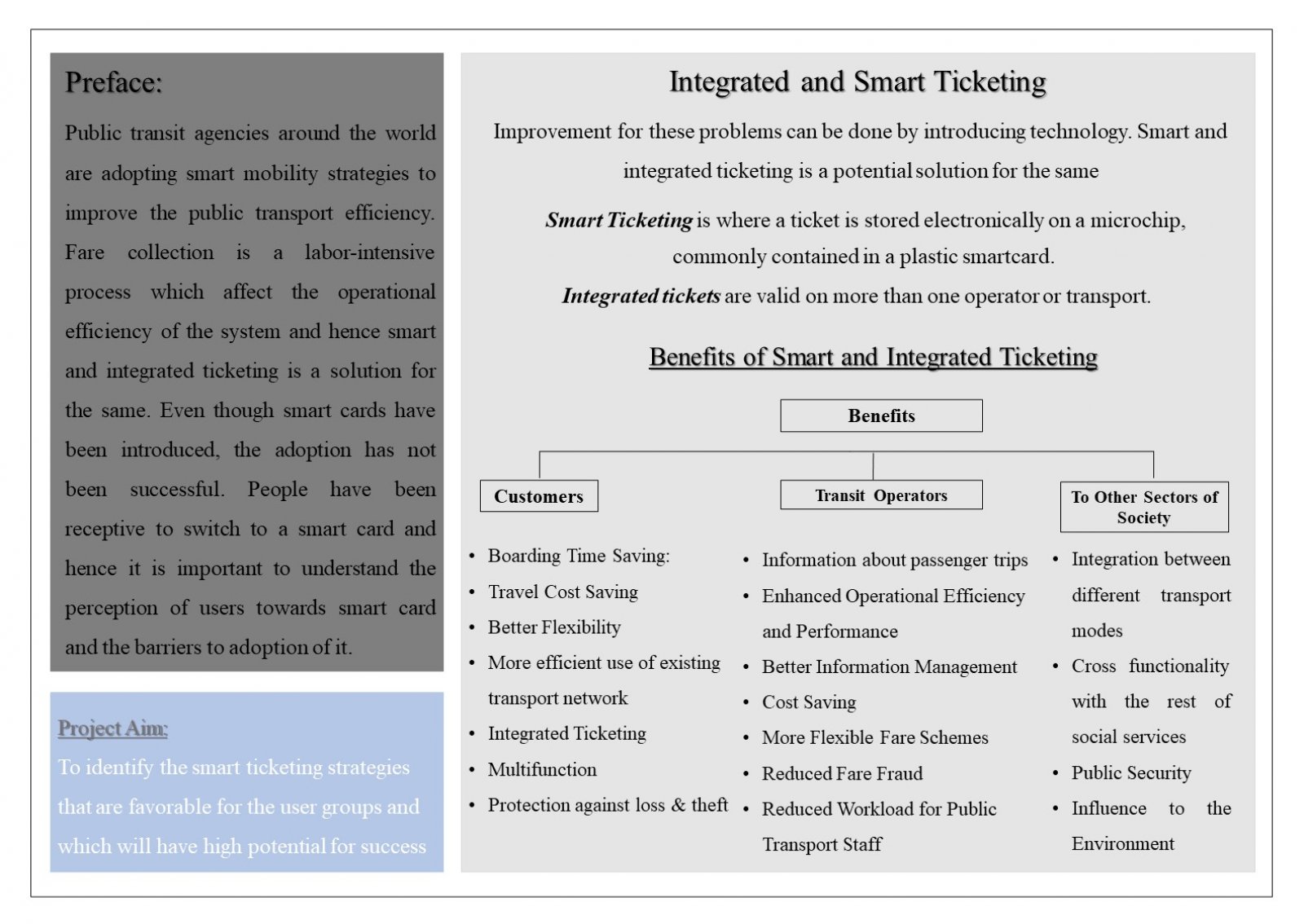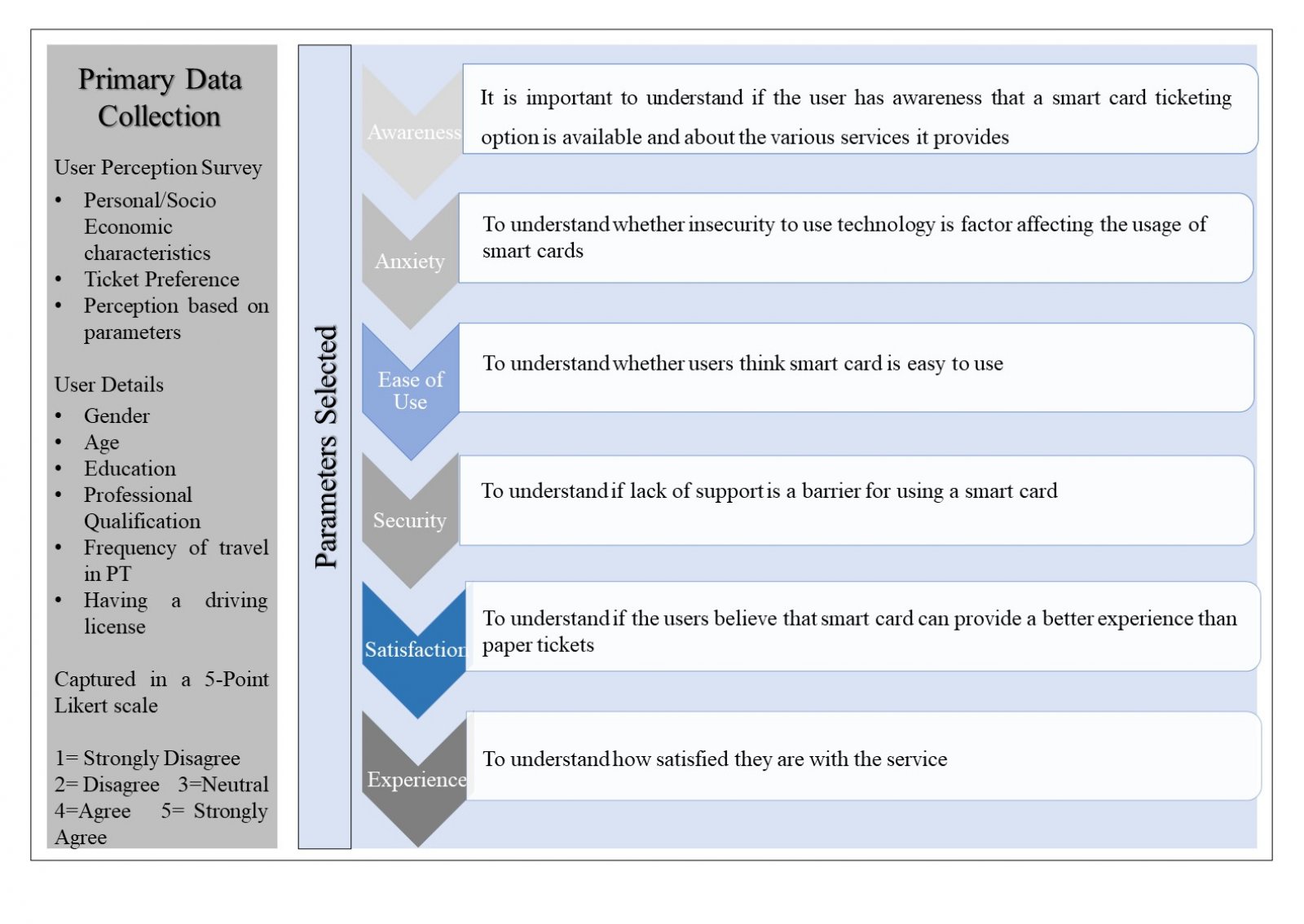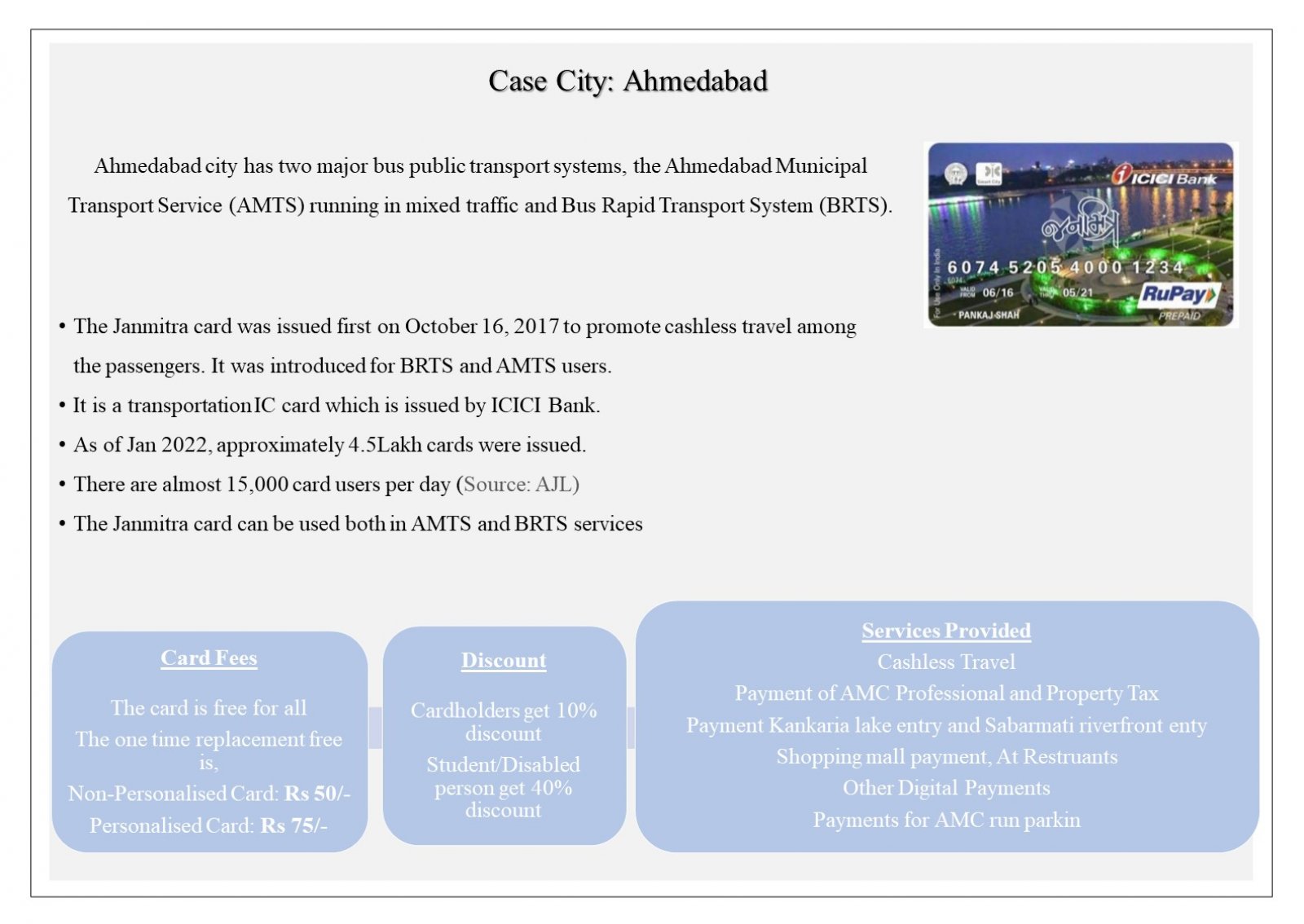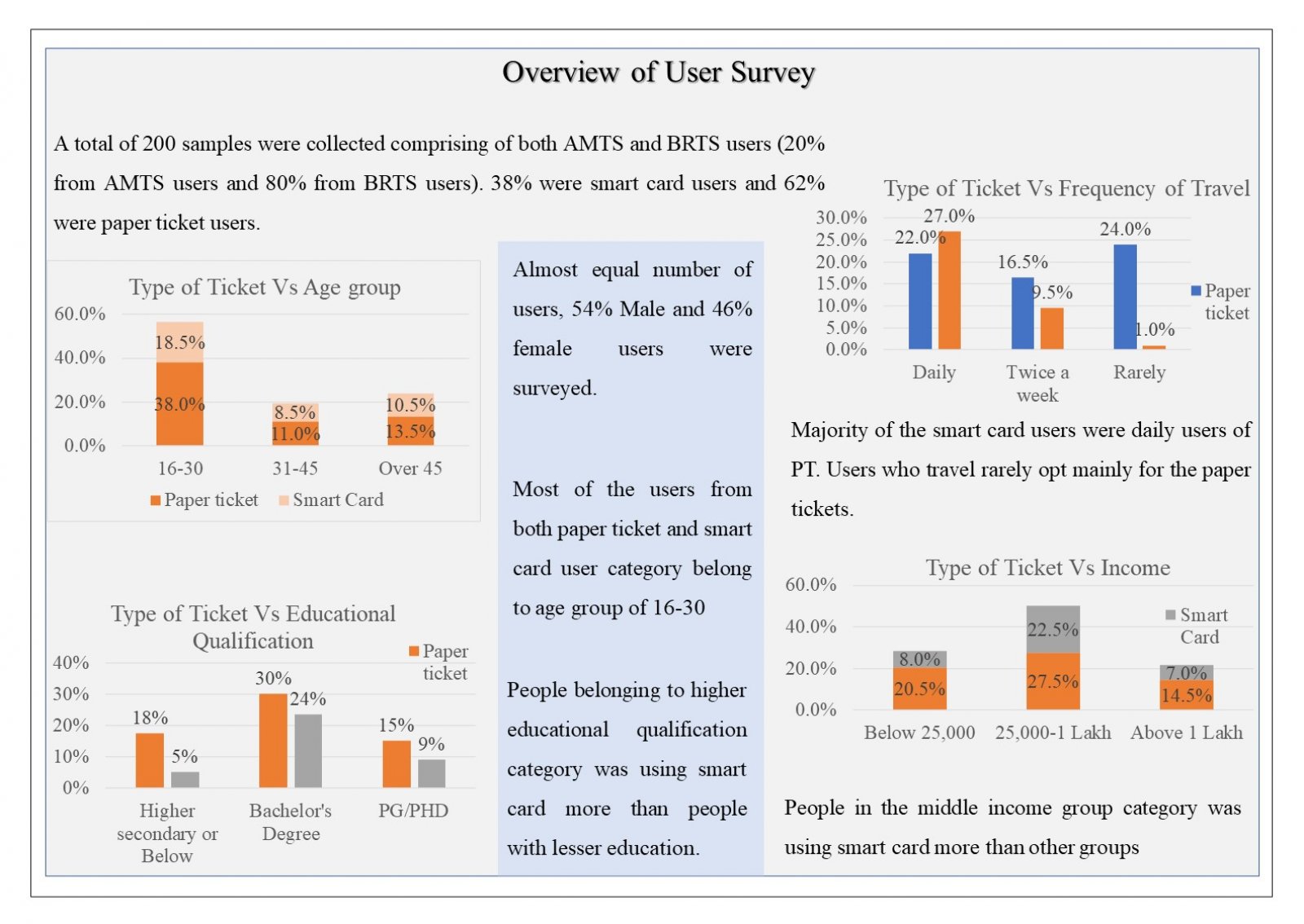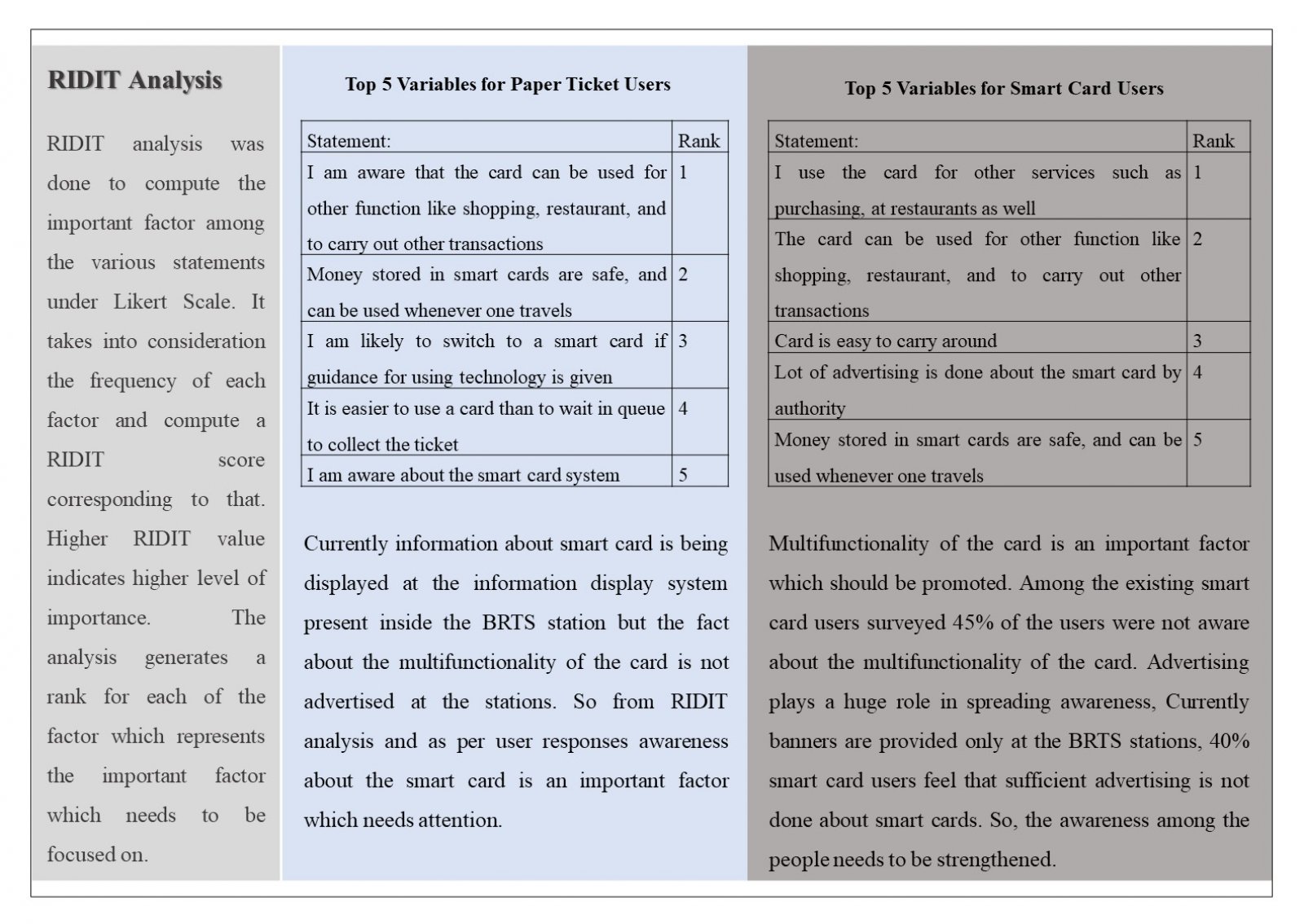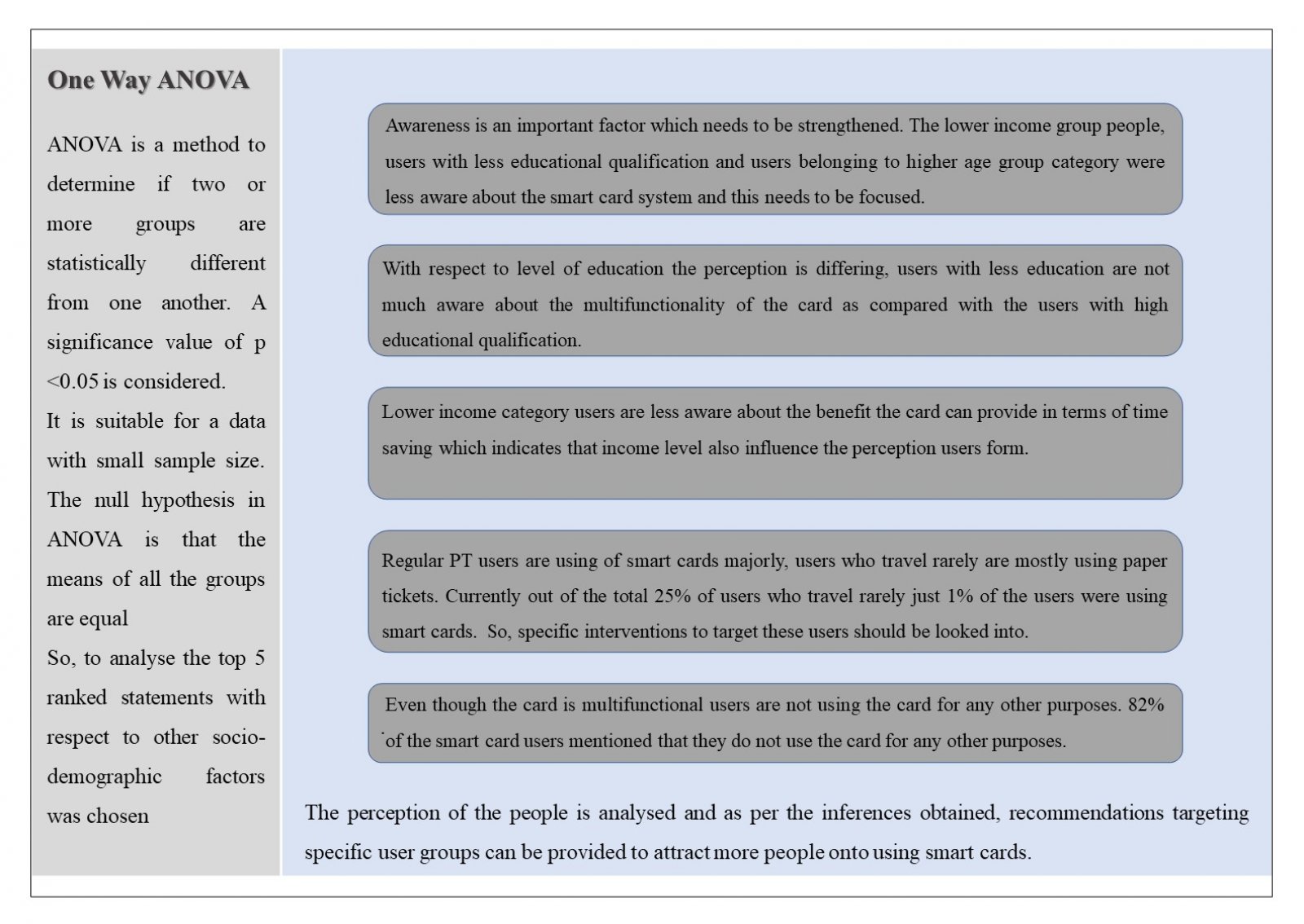Your browser is out-of-date!
For a richer surfing experience on our website, please update your browser. Update my browser now!
For a richer surfing experience on our website, please update your browser. Update my browser now!
Public transit agencies around the world are adopting smart mobility strategies to improve the public transport efficiency. Even though smart cards have been introduced, the adoption of these has not been successful. People have been receptive to switch to a smart card and hence it is important to understand the perception of users towards smart card and the barriers to adoption of it. The main objective of the study is to understand various smart ticketing strategies adopted across the world, to analyse the ticket preferences of different user groups for the case city of Ahmedabad, challenges faced in adoption and suitable strategies to overcome it. Literature study was done to understand various smart ticketing strategies adopted across the world and various factors influencing adoption. User perception survey was carried out to capture various socio-economic features. The top 5 variables were found for both paper ticket users and smart card users from RIDIT analysis. One-way ANOVA test was done to understand the impact of various socio-demographic factors on the variables. Results showed that socio-demographic factors such as age, income, educational qualification, and frequency of travel have a statistically significant effect over the variables. Thus, the study mainly understands the user perception about the smart cards, challenges faced and how the perception is varying across the user groups.
